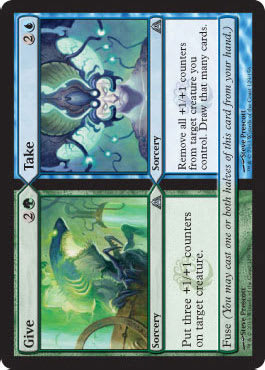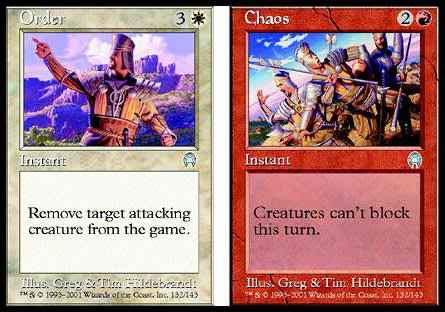I’ve been privileged to have a ballot for the Pro Tour Hall of Fame running a few years now, and despite “practice,” it’s only become harder to decide what to do. Voting for the Hall of Fame is something I take “very seriously” in the strictest of senses: While I’ve cut my teeth on coverage, chasing the stories and players of the weekend, I don’t get to play against the game’s greatest often enough.
I know I’ll never belong among the hallowed few inducted, and yet, I influence who makes it there. Well, at least this year we all do.
This year marks the first that the community at large gets to vote for the #mtghof! Get out there, discuss, and vote! http://t.co/f4WGHXLlov
— Magic Pro Tour (@magicprotour) July 7, 2015
I approach voting for the Hall of Fame from multiple angles. As a fan, I want to see those who truly are the game’s greatest stick around for more Magic history. As an outside to professional Magic, I want to see the values that have come to define sportsmanship and respect within the community supported. As a coverage reporter, I want to see the next chapter in stories that seem to be only just beginning or have long since petered out. As a contractor for Wizards of the Coast with a vested interest in seeing Magic grow as large as possible, I want the Hall of Fame to be the ultimate goal of competitive players as the final expression of success at the highest levels of the game.
These perspectives are sometimes at odds with each other, and I spend due diligence to sort through them.
I’ve discussed before why I will never vote for Tomoharu Saito, and more contentiously, I didn’t vote for Guillaume Wafo-Tapa the same year he earned his induction. It’s not every day, or ever really, that Jon Finkel disagrees strongly enough to make time to argue that I’m specifically wrong, but the Hall of Fame season is full of little moments like that.
I’ve also discussed that I use player statistics to inform my decisions, but they aren’t the end all, be all of voting. Some voters focus on specific lines and numbers, arguing for a sieve that ensures only their definitions of the best make it. Ben Stark doesn’t believe setting higher and higher bars for stats necessarily makes for a better Hall of Fame, and I agree. Top players form respect for others on a number of factors, but a hot-button topic is always “the greatest player.” Lifetime. Active. Last season. Last year. Right now. This tournament. I’ve heard dozens of discussions and arguments, and on rare occasions I have been invited to share my thoughts. Mostly, though, I just listen to better understand how those who aren’t my peers view theirs.
Magic is a meritocracy through and through, so sitting down and playing better than most opponents is a focal point for others’ admiration.
I do know what I want the Hall of Fame to represent to me. I want players whom I’m proud to have represent the game for me. When I interviewed Reid Duke about good Hall of Fame ballots at Grand Prix Montreal a couple weeks ago, his stats baselines and perspective was much higher than mine but came from the same goal of having people we’re proud of there for Magic.
Some voters focus on the face the Hall of Fame comes with lifetime Pro Tour invitations—but as we all know, what Wizards decides now can change in the future. The benefits or perks are irrelevant to me—it’s the status as a namesake for all time that I care about. This year, I will keep it short and simple, focusing on the players whom I would be thrilled to see stand tall as some of the faces for Magic in the future.
Willy Edel
I voted for Edel last year after hearing some of his story from then Coverage Report and now mighty Wizards wizard Mike Rosenberg. Since then, he’s earned more respect and top finishes as he’s continued to promote and support the Magic community in Brazil. His story has grown, and the respect of his peers have has risen. Paulo Vitor Damo da Rosa shared more details about Edel that are relevant to understanding voting for him.
When I think of people I’m proud of, they’re always those who are both talented and humble, willing both to do what’s best for those around them and to put their money where their mouth is by demonstrating it themselves.
Edel exemplifies both and leads my ballot.
Eric Froehlich
My first time meeting Froehlich was at U.S. Nations 2010, where he berated me for not knowing his name. It was no secret that he was among the best players to ever shuffle up a deck and that he could be the deepest salt mine you’d ever see if things didn’t go to plan.
But that’s not the whole story.
Narratives are boring when they’re one-dimensional and unchanging. Froehlich didn’t just continue to put up results, but he identified that his greatest weakness was how his behavior and personality annihilated positive perceptions some people had for him. I spent several years with a poor view of Froehlich, but as he worked hard to change and grow as a person, that changed.
Pro Tour Gatecrash was where it truly began to break through to everyone else.
At his worst, I would never want Froehlich to be someone representing the game for me. Now, at what I would argue is among his best as a player and human, I can think of only a handful who are as deserving as he is.
Justin Gary
It’s widely known Justin Gary is someone Brian Kibler has worked on games with, and it’s widely known Gary isn’t an active Magic player—at least at high-level events where we’d read about him.
Kibler summed much of my thoughts and knowledge about Gary in his ballot article again this year, so I won’t dwell on what makes Gary a standout candidate: stats. What adds to his is that, from players in that era, there is near universal respect that Gary was a phenomenal player. During his time on the Pro Tour, he accomplished what seems nearly impossible today.
Like other Hall of Fame processes and histories for other sports, there are discussions about times and eras and how a given game has changed. I can’t comment on whether the elite of Magic are at a higher standard today than a decade or longer ago, but I do respect when those who have found success in both eras hold Gary in high esteem as a player.
That informs me just as much as his statistics.
Shota Yasooka
Fellow coverage reporter and mainstay of the Pro Tour floor Tim Willoughby did an excellent job explaining his perspective on every available candidate. What he also did, in my opinion, was the best job of was explaining why Shota Yasooka is someone to genuinely consider for Hall of Fame ballots.
I was at the first “Player’s Championship”—that was the year Wizards revamped the World Championship. Now named appropriately, I had the pleasure to watch Yasooka play. He demolished player after player, cutting through the likes of Jon Finkel and more with apparent ease. His Modern deck was off the radar for the metagame but wasn’t a direct metagame call like Reid Duke’s redemption run the following year with Bogles.
Yasooka plays like the best among the best, often with different decks played at a speed betraying his mastery of it. He exemplifies what it means to be good at Magic, and he plays to win every time. His humble-yet-competitive quip early on in Vice’s look at Magic speaks volumes for his character.
The Final Ballot
- Willy Edel
- Eric Froehlich
- Justin Gary
- Shota Yasooka
These players hit the breadth and depth of what I want for Hall of Fame players, though there are many more lurking just beyond. While I’ve read tens of thousands of words of articles and feature matches, rewatched dozens of video features, and agonized over whether I’m making the right decision, I’m confident my vote is the best I can offer this year.
And that’s what makes it tougher every time: Each year is a new crop with the arguable best from the previous year gone. What matters most is that I’m confident to put every name I send on behind the title “Pro Tour Hall of Fame member.”
























